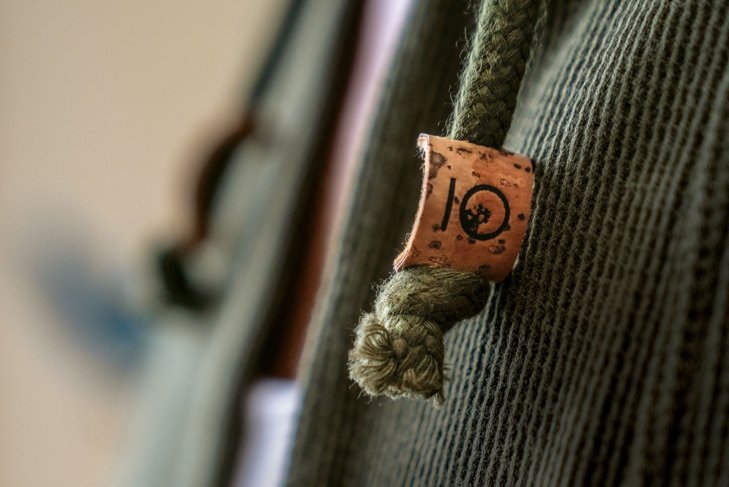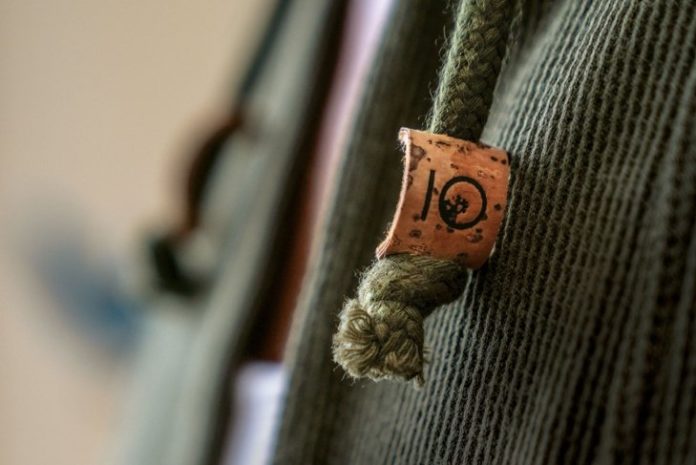
The fashion industry is responsible for 92 million tons of solid waste dumped in landfills each year. The typical consumer purchased 60 percent more clothing in 2014 than in 2000, but they only kept each item for half as long. Getting dressed involves a lot of take, take, take, environmentally speaking—and a lot of waste.
But what if that were disrupted? What if clothing actually gave back to the earth somehow? That’s where apparel company tentree comes in. It plants 10 trees for every item sold and produces products with the highest sustainability standards on the market. Their target? To plant 1 billion trees by 2030.
In the words of tentree’s marketing manager, Sasha Bricel, “We aim to create a new path for the textile industry—one that prioritizes the health of the planet at every stage of production.”
A seed of an idea
In 2011, Kalen Emsley and David Luba were hiking in Hawaii, in awe of the breathtaking landscape and wishing to do something to help protect the environment. Emsley, with a background in tree planting, and Luba, with a background in sales, began brainstorming how to combine their skills.
They realized that if they were to make and sell shirts, they would make enough to plant 10 trees per garment. They brought Emsley’s brother Derrick Emsley on board as CEO, and tentree was born. Today, in addition to shirts, tentree makes everything from hoodies to pants—even leashes for your dog.
The nitty-gritty
To date, tentree has planted more than 25 million trees. The beautifully simple business model “helps to offset carbon emissions, absorbs CO2, restores ecosystems, combats deforestation and provides food and shelter for animals,” says Bricel.
But tentree’s sustainable practices don’t end there. Everything from materials to packaging and transportation are carefully thought through based on their environmental impact.
“We ask ourselves: ‘Where is it coming from and how is it transformed?’; ‘Are there any environmental and/or ethical questions?’; ‘What happens to that material at the end of its use or life?’ and ‘Is there a preferred option out there?’” explains Bricel. “True sustainability for us is achieved when a material is fully renewable or indefinitely recyclable—that is, when it meets the principles of cradle-to-cradle rather than cradle-to-grave.”
To get there, tentree works closely with groups such as Textile Exchange and Sustainable Apparel Coalition, as well as accreditation and/or certification bodies, including Global Organic Textile Standard, Organic Cotton Standard and Forestry Stewardship Council.
Looking ahead
Bricel says the tentree team is motivated by many things. The hope that, through planting trees, they will help end climate change and the destruction of our planet. The fact that tentree provides jobs, food and shelter to hundreds of people in developing countries. The desire to create a culture of sustainability that’s accessible to all.
The company has many concrete goals, starting with ensuring all its cotton is Fair Trade Organic or recycled by 2020. By 2025, all its products will be fully circular (either biodegradable or fully recyclable). By 2030, all its products will be C2C (carbon neutral), with tree planting as the bonus.
“The average consumer has no idea how many steps go into the making of a t-shirt,” says Bricel. “From growing cotton or extruding polyester filament to getting the finished product ready to be shipped to the end consumer, there could be over 20 different business entities involved, each with their own understanding of social and environmental compliance.”
In short, the road ahead is a tough but rewarding one.
“At tentree, we built our business model on sustainability. That makes production and scaling a much harder and longer process, but we know it’s worth it,” says Bricel.
What are you wearing?
Here’s what some common clothing label terms mean … and why they make a difference.
zero waste: no waste created in the manufacturing and/or at the end of the garment’s life
vegan: no animal products used
dye free: no dyes used to color the garment
Certified Organic: no toxic pesticides/fertilizers or genetically modified seeds used; healthy soil practices followed (look for a certification label such as GOTS for cotton)
local: no standardized definition (look for products made by companies, craftspeople or entrepreneurs in your city/state/country)
Fair Trade Certified: fair labor standards upheld, like no child labor used (look for a certification label)
Oeko-Tex Certified: textile-specific certification that tests products for harmful substances
bluesign Certified: textile-specific certification that focuses on sustainability and safety through the production process
B Corp Certified: business certification that examines factors such as social responsibility, public transparency and environmental performance
Put a cork on it
Instead of leather, tentree uses sustainably harvested cork (and vegan-friendly glue!) to make unique clothing details.



